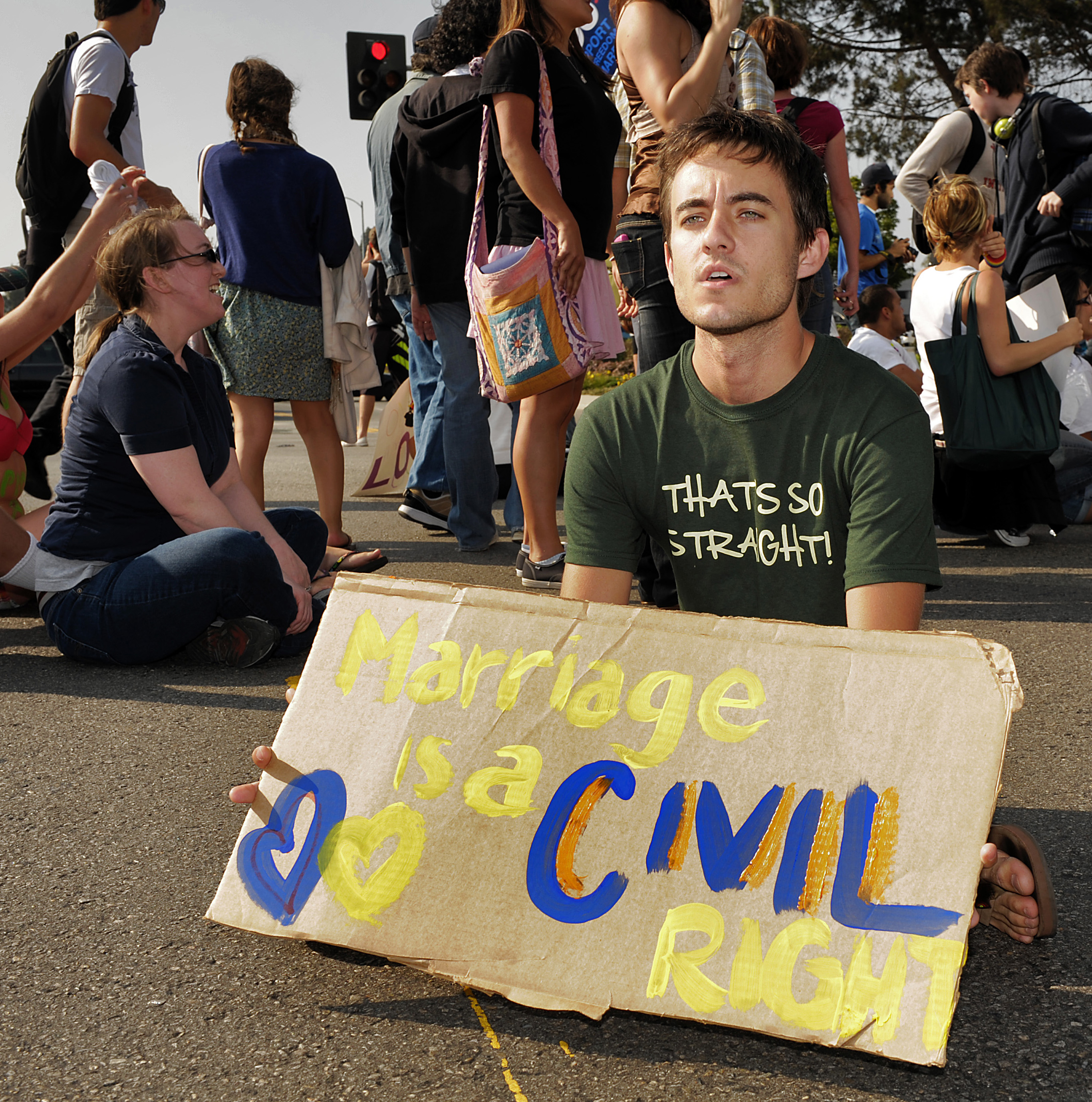The California Supreme Court decided to uphold Proposition 8 on Tuesday, which bans same-sex marriage in California.
The court also ruled that the approximately 18,000 same-sex marriages that took place before Proposition 8 passed will be legally upheld.
Proposition 8 was a state ballot initiative that passed into law with 52 percent of the vote last November. It reversed the state Supreme Court’s May 2008 decision to make it illegal to deny same-sex couples the right to marry in California.
Raffi Sarkissian, a fourth-year communication studies and sociology student and president of the Student Coalition for Marriage Equality, said he and other same-sex marriage rights activists argued that Prop. 8 should have been treated as a revision and not an amendment to the constitution because it was aiming to take away the rights of a minority.
He said that revisions to the constitution have to pass with a two-thirds vote in the state legislature before going to the ballot, but amendments do not.
The court’s most recent decision rejects the claim that the ban on same-sex marriage was in violation of the California Constitution’s equal protection clause.
The court held 6-1 that Proposition 8 constitutes an amendment and not a revision to the California Constitution.
Andrew Kreitz, a third-year business economics student and chairman of Bruin Republicans, said he believes the Supreme Court made the right decision.
“I wasn’t a supporter (of Proposition 8) myself, but given that the voters spoke and this wasn’t a full revision of the constitution, I don’t think it was unreasonable,” he said.
Kreitz said he doesn’t believe the constitutional marriage ban can be defined as a revision to the constitution because it was a one-line modification, and should therefore be classified as an amendment.
He said he also agrees with the decision to uphold the 18,000 existing same-sex marriages.
“I think it’s very reasonable that the marriages that exist are allowed to stand, simply because they’ve been grandfathered in,” he said.
Ronni Sanlo, director of the UCLA Lesbian, Gay, Bisexual and Transgender Campus Resource Center and a professor at the UCLA Graduate School of Education, said she believes the court ruling has created a different class of citizenship and equality for those 18,000 couples.
She said she believes the court didn’t have any option but to uphold those marriages because they were legal at the time they took place and also because there are difficulties in differentiating between same-sex and heterosexual marriage licenses, as the California marriage license was revised in June to not specify the gender of the parties.
Sanlo said she is disappointed with the Court’s decision because she believes California was at the forefront of other civil rights movements, such as the decision in Brown v. Board of Education and the issue of interracial marriage.
“California was leading the train a while back and now we’re still at the station, trying to play catch-up,” Sanlo said.
Sesilya Saraydarian, a third-year political science student, said she believes the state and nation are not ready for same-sex marriage.
“I’m glad they’re upholding Prop. 8. The next generation hasn’t kicked in yet and those old morals still exist and they’re still teaching us the traditional ways,” she said.
Saraydarian said she is traditional in her views of marriage.
“It’s not like I’m scared of two people of the same sex being together, but I believe marriage should be between a man and a woman still,” she said.
Doug NeJaime, a teaching fellow at the Williams Institute at the UCLA School of Law, said he believes it is inevitable that same-sex marriage will be legalized in California because there is a generational gap between younger voters who tend to favor same-sex marriage and older voters who don’t.
“I think history is on the side of expanding civil rights,” he said. “We’ve seen additional states, including Iowa, Vermont and Maine, move toward same-sex marriage.”
There is already a push by proponents of same-sex marriage to put an initiative to legalize same-sex marriage on the ballot during the 2010 gubernatorial elections, said Danny Torres Lopez, a fourth-year political science student and director of Queer Alliance.
“We’re not even close to finishing,” he said.
Torres Lopez said he believes the term “marriage” is symbolic and civil unions won’t get the same title as married couples.
“The title of marriage is recognized in every religion and language. Whether you’re religious or non-denominational, marriage is an everyday term used by people who love each other,” Torres Lopez said.
NeJaime said the court ruling stipulates that domestic partnerships, the term given to civil unions in California, will remain in force and same-sex couples will still theoretically get the same substantive rights and benefits that go along with a marriage relationship.
But NeJaime said the federal government still does not recognize domestic partnership and employers and third parties still tend to treat domestic partnership differently from marriage.
